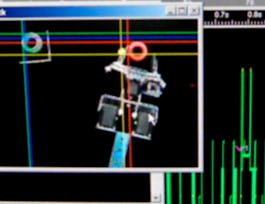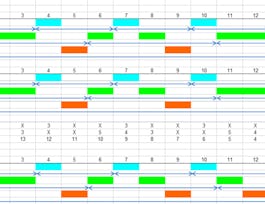This course can also be taken for academic credit as ECEA 5315, part of CU Boulder’s Master of Science in Electrical Engineering degree.


Real-Time Embedded Systems Concepts and Practices
This course is part of Real-Time Embedded Systems Specialization
Taught in English
Some content may not be translated

Instructor: Sam Siewert
14,684 already enrolled
Included with 
Course
(60 reviews)
Recommended experience
What you'll learn
A beginning practitioner's understanding of rate monotonic theory, analysis, and practices for embedded systeems.
Implementation of real-time services as POSIX threads.
Difference between Linux user space and kernel space.
Skills you'll gain
Details to know

Add to your LinkedIn profile
11 quizzes
Course
(60 reviews)
Recommended experience
See how employees at top companies are mastering in-demand skills

Build your subject-matter expertise
- Learn new concepts from industry experts
- Gain a foundational understanding of a subject or tool
- Develop job-relevant skills with hands-on projects
- Earn a shareable career certificate


Earn a career certificate
Add this credential to your LinkedIn profile, resume, or CV
Share it on social media and in your performance review

There are 4 modules in this course
This module gives an introduction to real-time theory , challenges faced in designing real-time systems and scheduling policies implemented while comparing the Linux POSIX real-time threads to RTOS and MFE systems.
What's included
8 videos6 readings4 quizzes2 programming assignments1 peer review1 discussion prompt
This module describes the utility curves used for analysis of real-time systems along with Rate Monotonic Scheduling Policy and its Least Upper Bound Condition. It also describes the absolute time and date standards which are critical parameters for real-time services.
What's included
7 videos3 readings3 quizzes1 programming assignment2 peer reviews
This module covers the methods of sequencing of service requests along with software scheduling and real-time scheduling policies.
What's included
13 videos1 reading2 quizzes2 peer reviews
This module discusses the use of multi core microprocessors for real-time applications and gives an overview of RTOS Options (Open and Proprietary) and OS with POSIX Real-Time Extensions for real-time systems.
What's included
4 videos2 readings2 quizzes1 programming assignment3 peer reviews
Instructor

Offered by
Recommended if you're interested in Electrical Engineering

University of Colorado Boulder

University of Colorado Boulder

University of Colorado Boulder

University of Colorado Boulder
Get a head start on your degree
This course is part of the following degree programs offered by University of Colorado Boulder. If you are admitted and enroll, your coursework can count toward your degree learning and your progress can transfer with you.
Why people choose Coursera for their career




Learner reviews
Showing 3 of 60
60 reviews
- 5 stars
49.18%
- 4 stars
18.03%
- 3 stars
9.83%
- 2 stars
8.19%
- 1 star
14.75%

Open new doors with Coursera Plus
Unlimited access to 7,000+ world-class courses, hands-on projects, and job-ready certificate programs - all included in your subscription
Advance your career with an online degree
Earn a degree from world-class universities - 100% online
Join over 3,400 global companies that choose Coursera for Business
Upskill your employees to excel in the digital economy
Frequently asked questions
Access to lectures and assignments depends on your type of enrollment. If you take a course in audit mode, you will be able to see most course materials for free. To access graded assignments and to earn a Certificate, you will need to purchase the Certificate experience, during or after your audit. If you don't see the audit option:
The course may not offer an audit option. You can try a Free Trial instead, or apply for Financial Aid.
The course may offer 'Full Course, No Certificate' instead. This option lets you see all course materials, submit required assessments, and get a final grade. This also means that you will not be able to purchase a Certificate experience.
When you enroll in the course, you get access to all of the courses in the Specialization, and you earn a certificate when you complete the work. Your electronic Certificate will be added to your Accomplishments page - from there, you can print your Certificate or add it to your LinkedIn profile. If you only want to read and view the course content, you can audit the course for free.
If you subscribed, you get a 7-day free trial during which you can cancel at no penalty. After that, we don’t give refunds, but you can cancel your subscription at any time. See our full refund policy.

